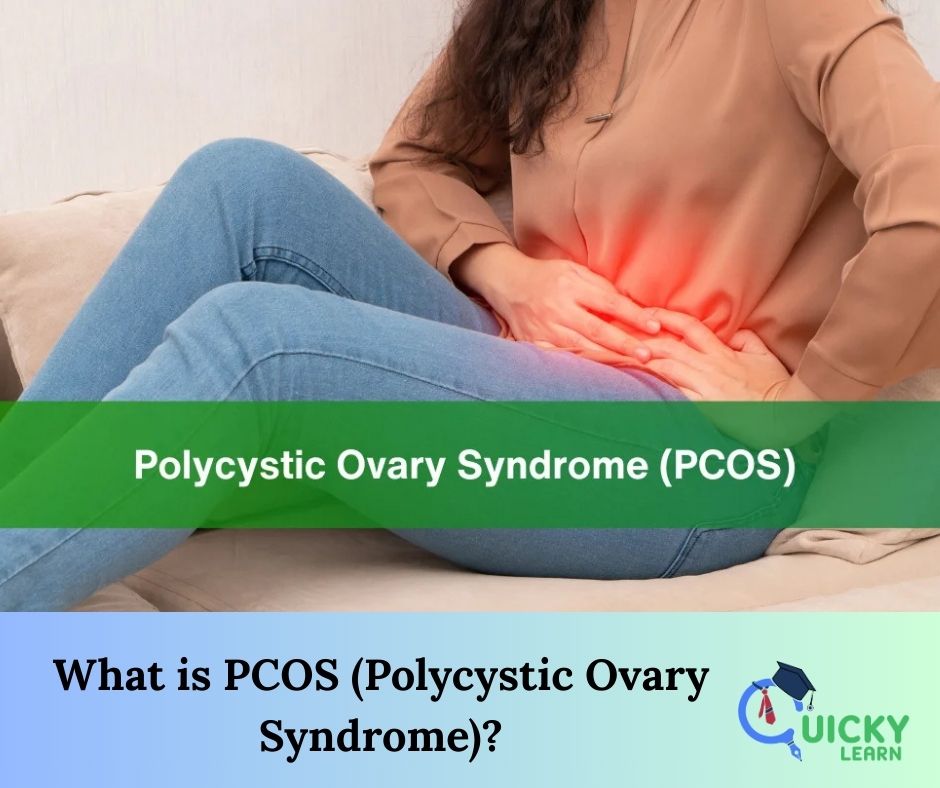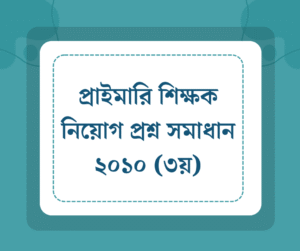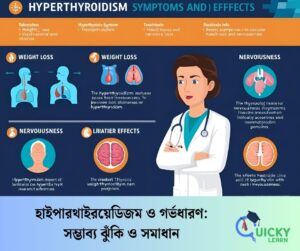What is PCOS (Polycystic Ovary Syndrome)?- Polycystic Ovary Syndrome (PCOS) is a hormonal disorder common among women of reproductive age (typically 15–44 years). It affects how the ovaries work, often causing irregular periods, excess male hormone levels (androgens), and polycystic ovaries — meaning the ovaries contain many small, fluid-filled sacs (follicles).
⚠️ Main Symptoms of PCOS:
- Irregular Periods
- Infrequent, prolonged, or absent menstrual cycles.
- Infrequent, prolonged, or absent menstrual cycles.
- Excess Androgens
- Higher levels of male hormones leading to:
- Facial/body hair growth (hirsutism)
- Acne
- Scalp hair thinning (male-pattern baldness)
- Facial/body hair growth (hirsutism)
- Higher levels of male hormones leading to:
- Polycystic Ovaries
- Enlarged ovaries with multiple small follicles that fail to regularly release eggs.
- Enlarged ovaries with multiple small follicles that fail to regularly release eggs.
🧬 Causes of PCOS:
The exact cause isn’t fully known, but several factors may play a role:
- Insulin Resistance:
Many women with PCOS have insulin resistance, causing higher insulin levels which may increase androgen production. - Hormonal Imbalance:
PCOS involves a mix of hormonal imbalances including high LH (luteinizing hormone), low FSH, high testosterone, and elevated insulin. - Genetics:
PCOS often runs in families.
🧪 How is PCOS Diagnosed?
Doctors usually diagnose PCOS if you meet at least two of these three criteria:
- Irregular or no periods
- Signs of high androgens (acne, hirsutism)
- Polycystic ovaries visible on ultrasound
Other tests may include blood tests (hormones, glucose, lipids) and a pelvic ultrasound.
🩺 Health Risks Associated with PCOS:
If left untreated, PCOS can lead to:
- Type 2 diabetes
- High blood pressure
- Heart disease
- Infertility
- Endometrial cancer
- Sleep apnea
- Depression or anxiety
💊 Common Treatment Options:
While there is no cure, PCOS can be managed with:
- Lifestyle Changes:
- Healthy diet (low sugar, high fiber)
- Regular exercise
- Weight loss (even 5–10% can improve symptoms)
- Healthy diet (low sugar, high fiber)
- Medications:
- Birth control pills (regulate periods, lower androgens)
- Metformin (improves insulin sensitivity)
- Clomiphene or Letrozole (for fertility treatment)
- Anti-androgen medicines (like spironolactone)
- Birth control pills (regulate periods, lower androgens)
🌿 Natural Tips to Manage PCOS:
Track your cycles and symptoms
Avoid processed sugar and refined carbs
Eat anti-inflammatory foods (berries, greens, nuts)
Sleep 7–8 hours a night
Manage stress with yoga or meditation





